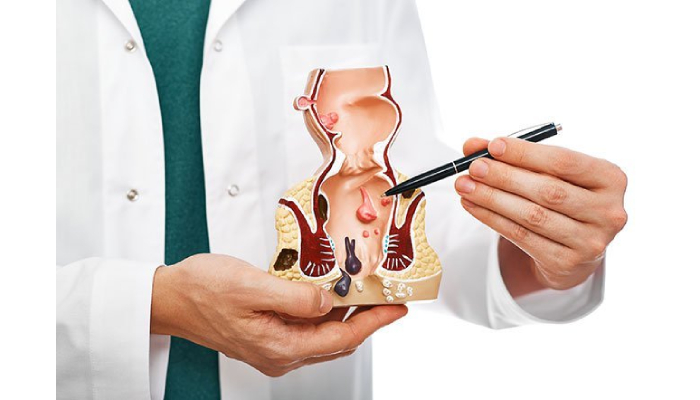Piles Specialist in Wakad Pune
Piles or Hemorrhoids are inflamed and swollen collections of tissue in the anal area. They can have a range of sizes, and can be internal or external. Internal piles are normally located between 2 and 4 centimeters (cm) above the opening of the anus, and they are the more common type. External piles occur on the outside edge of the anus. Piles is also known as hemorrhoids. Hemorrhoids are collections of inflamed tissue in the anal canal. They contain blood vessels, support tissue, muscle, and elastic fibers. Many people have piles, but the symptoms are not always noticeable. If you’re experiencing symptoms like pain, bleeding, or swelling, it’s important to consult a piles specialist. Dr. Ujwal Zambare, a best piles specialist in Wakad, Pune offers advanced diagnostic and treatment options at True Life Clinic & Wellness Center to help you manage and alleviate your condition.

Causes of Piles
Piles are caused by increased pressure in the lower rectum. The blood vessels around the anus and in the rectum will stretch under pressure and may swell or bulge, forming piles. This may be due to:
- chronic constipation
- chronic diarrhea
- lifting heavy weights
- pregnancy
- straining when passing a stool
Symptoms of Piles
- A hard, possibly painful lump may be felt around the anus. It may contain coagulated blood. Piles that contain blood are called thrombosed external hemorrhoids
- After passing a stool, a person with piles may experience the feeling that the bowels are still full.
- Bright red blood is visible after a bowel movement.
- The area around the anus is itchy, red, and sore.
- Pain occurs during the passing of a stool.
- Excessive anal bleeding, also possibly leading to anemia
- Infection
- Fecal incontinence, or an inability to control bowel movements
Treatment for Piles
Treatment without surgery
- rubber band ligation: a band is placed around your piles to make them drop off
- sclerotherapy: a liquid is injected into your piles to make them shrink
- electrotherapy: a gentle electric current is applied to your piles to make them shrink
- infrared coagulation: an infrared light is used to cut the blood supply to your piles to make them shrink
Treatment with Surgery
- haemorrhoidectomy: your piles are cut out
- stapled haemorrhoidopexy: your piles are stapled back inside your anus
- haemorrhoidal artery ligation: stitches are used to cut the blood supply to your piles to make them shrink
Prevention
- Eat high-fiber foods. Eat more fruits, vegetables and whole grains. Doing so softens the stool and increases its bulk, which will help you avoid the straining that can cause hemorrhoids. Add fiber to your diet slowly to avoid problems with gas.
- Drink plenty of fluids. Drink six to eight glasses of water and other liquids (not alcohol) each day to help keep stools soft.
- Consider fiber supplements. Most people don’t get enough of the recommended amount of fiber — 20 to 30 grams a day — in their diet. Studies have shown that over-the-counter fiber supplements, such as psyllium (Metamucil) or methylcellulose (Citrucel), improve overall symptoms and bleeding from hemorrhoids.
- Don’t strain. Straining and holding your breath when trying to pass a stool creates greater pressure in the veins in the lower rectum.
- Go as soon as you feel the urge. If you wait to pass a bowel movement and the urge goes away, your stool could dry out and be harder to pass.
- Exercise. Stay active to help prevent constipation and to reduce pressure on veins, which can occur with long periods of standing or sitting. Exercise can also help you lose excess weight that might be contributing to your hemorrhoids.
When to Consult a Doctor for Piles Near You?
If you are experiencing persistent pain, rectal bleeding, itching, swelling, or discomfort due to piles (hemorrhoids), it’s essential to seek medical attention. Ignoring symptoms may lead to complications such as thrombosed hemorrhoids, Fistula, chronic bleeding, or infection.
Request a Call Back!
Looking for best Piles care in Pune? Dr. Ujwal Zambare at True Life Clinic & Wellness Center offers advanced and personalized treatment for piles. Don’t suffer in silence—get the relief you deserve today!
